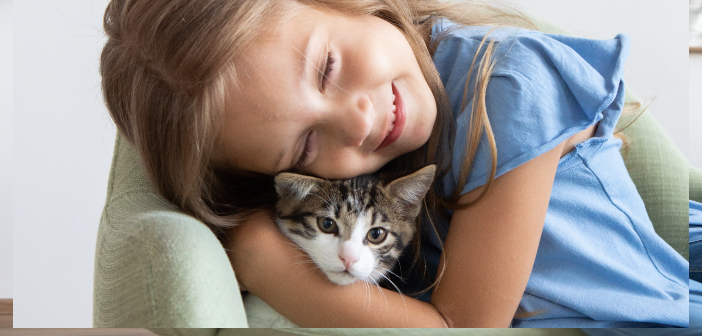Beijing is not what people would call a pet-friendly city – the traffic, the narrow or non-existent sidewalks that make it pretty difficult for dogs to run freely and explore. Registering a dog is mandatory, but not all dogs can be registered.
Depending on which part of the city you live in, there are different restrictions on the size and number of dogs you can keep. So you see, having a pet in this huge city is tricky, to say the least. But despite all these limitations, it is becoming increasingly common among Beijing residents.

If your family brought, bought or adopted a pet in the city, you know the very special place it holds in the heart of your child. Be it a dog, a cat or a hamster, they are our kids’ companions, best friends, family members. Unfortunately, for every kid that has a pet there comes a time when they must face the reality of grief when their pet dies. It can be very upsetting for anyone, let alone a child who’s never gone through anything similar. The loss of a pet is often the first time a child will experience grief and loss so even though we as parents want to protect our kids from all the bad things, it is very important to help our child cope with the new emotions. Unlike adults, kids don’t know what to expect from grief and it’s crucial not to downplay the significance of their emotions when dealing with it.
Children of different ages experience grief and comprehend death differently, thus your approach when dealing with the loss of a pet should depend on the stage your child is at:

Babies, toddlers and preschoolers are very sensitive and they are highly influenced by other people’s emotions. They can sense when their parents or carers are stressed. Children at this stage do not understand the permanency of death and that’s why it’s very important to use simple language when explaining what happened to their pet.
School aged kids may often feel very distressed and scared when their pet dies because at this stage they already understand that death is permanent and irreversible. Their imagination is in full bloom so they may also believe that they’ve done something that caused it.

As for adolescents, losing a pet can be a traumatic experience. At this age children usually face difficulties and changes at school and relationships, so they greatly rely on their pets for stress relief.
Be straightforward
Whatever age your child is at, try not to use big words that they won’t understand. Avoid euphemisms. Even though it’s easier telling them that their pet went to a pet farm to make friends with other doggies, or help someone in need, altering the truth can backfire and leave your child wondering why his best friend chose another person over him/her. This can make him/her even more confused. But more importantly, kids are intuitive and can feel when something is off. So as much as we don’t want to use the big D word, it is important for them to hear the truth.

You can, of course, decide how much of the truth you are comfortable sharing (you don’t need to include detailed descriptions!), but explaining that their beloved pet will not come back is an important learning moment for our kids that will help them deal with their emotions.
Explain what death means
I know, this sounds harsh…I mean, how do you explain death to a five year old? You don’t even fully understand it…or don’t want to. But talking about it to your child is an important step in their eventual understanding of death. As much as we want to avoid the topic, death is a significant part of life and our children will have to deal with it throughout their lives. Explaining that all living things- trees, flowers, ants, bugs and even pets – die might be a good start. Choose your approach and what you’re comfortable with and start talking. Kids may find it comforting to know that when their pet dies it doesn’t feel any pain anymore, it won’t be hungry or cold or scared.

Talk about their feelings
This is an equally important part of the healing process. Let your child feel all the feelings and let him/her know that it’s okay to feel them. The impact that losing a pet has on a child can be very different in intensity. For some kids it may be small and not last for long. For others, the impact may be huge and last for weeks, even months.

That’s why it’s important to help kids label their feelings and tell them that whether it’s anger, confusion, sadness, despair or a combination of those, they are allowed to feel them and that that they will eventually pass. This is especially important for younger kids who experience these emotions for the first time so be sure to tell them things like “You are feeling sad. It’s okay to cry when we’re sad”, to hep them better understand their emotions.
Remember the happy times
Losing a family pet is never easy and it may seem unimaginable continuing your daily routine without your dog’s happy bark, but the best way to mourn the loss is to celebrate the great life you shared. After explaining the permanency of death to your kids, it is important to make them understand that life goes on and that you should be grateful for the great friend you had.

No better way to celebrate your furry friend’s life but by remembering and sharing all the funny and happy moments. Encourage your children to do activities that they enjoy and that will make them feel better. You could organize a ceremony where your kids could say goodbye to their pet, have friends over for a special lunch. Think of it as a memorial service. You could all share a happy memory, have a family photo with your dog displayed so everyone can see it. Making a scrapbook is also a nice way to acknowledge the important role the pet has had in your child’s life. You could include photos at different stages of your pet’s life, let younger kids draw a picture of their pet and older kids could write down some simple facts about it. Whatever your family chooses to do, it will make things a tiny bit easier.
Images: Pexels




